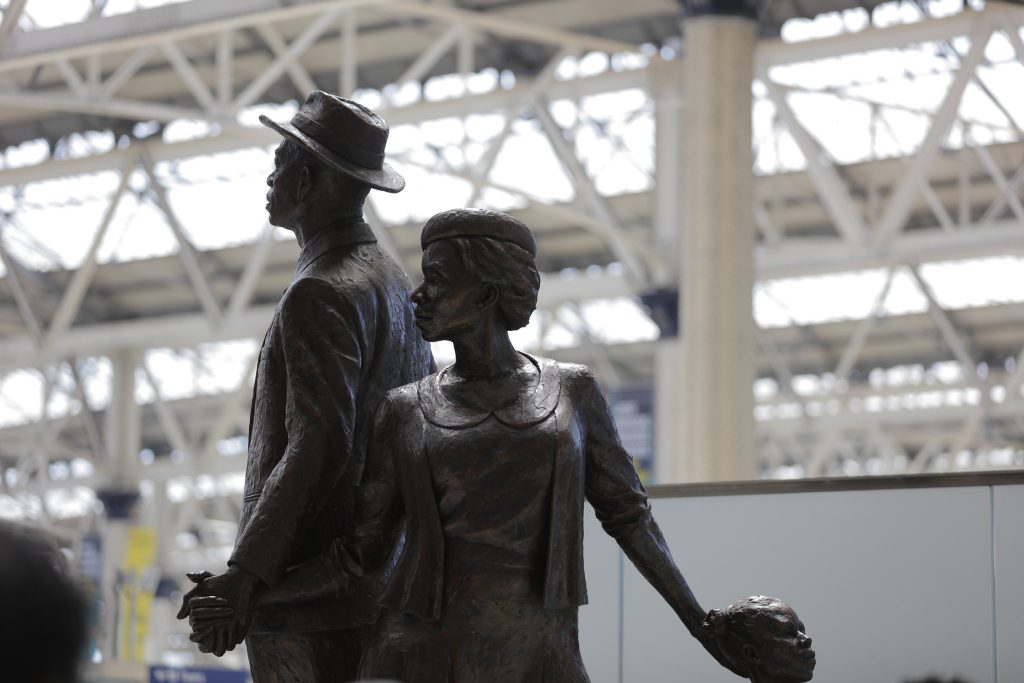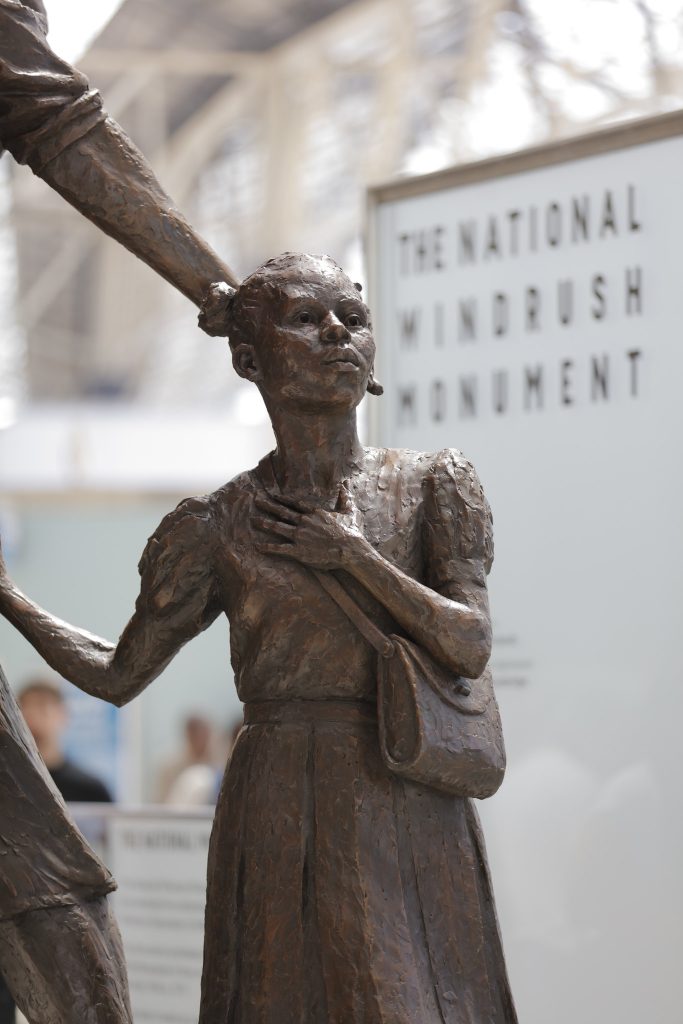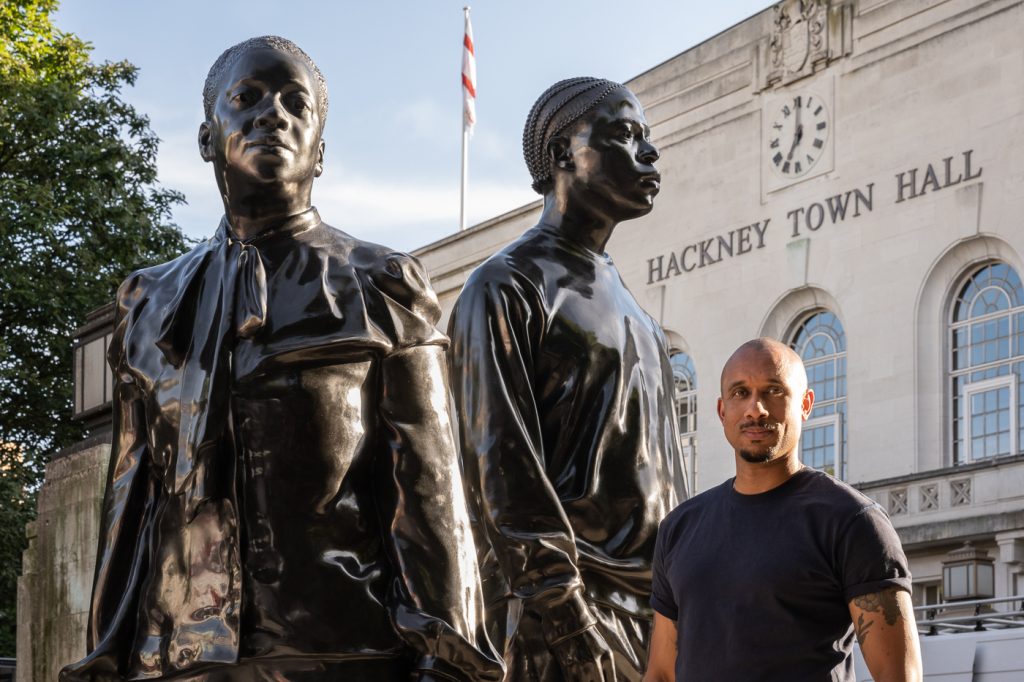Art & Exhibitions
London Honors the Caribbean Migrants of the Windrush Generation With Two New Public Monuments
The monuments have been installed at Waterloo Station and outside Hackney Town Hall.

The monuments have been installed at Waterloo Station and outside Hackney Town Hall.

Jo Lawson-Tancred

Two major public sculptures were unveiled yesterday in London to honor the Windrush Generation, the hundreds of thousands of West Indian migrants who moved to the U.K. in the decades after World War II.
A large bronze monument depicting new arrivals from the Caribbean standing on suitcases, by the Jamaican artist Basil Watson, was inaugurated at Waterloo Station. In the London borough of Hackney, Warm Shores, two standalone sculptures by Thomas J. Price, were installed outside the town hall.
The works were made public on Windrush Day, which was first introduced on June 22, 2018, to commemorate the Caribbean arrivals, including those on the Empire Windrush ship that docked in 1948. They made major contributions to the rebuilding of postwar Britain but also faced discrimination.

The National Windrush Monument at Waterloo Station in London. Photo courtesy of the Department for Levelling Up, Housing and Communities.
The official National Windrush Monument by Basil Watson is intended to convey the courage, commitment, and resilience of those who migrated to start new lives in the U.K. between 1948 and 1971, when the Immigration Act was introduced. The work was made possible through £1 million funding from the Department for Levelling Up, Housing and Communities.
“My parents, along with a great many others, took the long arduous voyage from the Caribbean with very little or nothing other than their aspirations, their courage, and a promise of opportunity for advancement,” said Watson. “Despite many challenges, they spread their culture across Britain influencing many aspects of society.”

Thomas J. Price in front of Warm Shores (2022) outside Hackney Town Hall. Photo: Damian Griffiths.
Thomas J. Price won the Hackney Windrush Art Commission in 2020 for his proposal to depict the Windrush Generation and their descendants. In May 2021, he invited Hackney residents with a personal connection to Windrush to be digitally photographed with a 3D-scanning device. The information gathered about clothing, features, and stature were all used in composite to inform the final two large-scale bronze sculptures of a man and a woman.
“It is important that my figures are not placed on plinths, to disrupt a sense of hierarchy that surrounds many public monuments,” said Price. “They exist amongst the public and daily life and are an extension of the people who inhabit these spaces.”